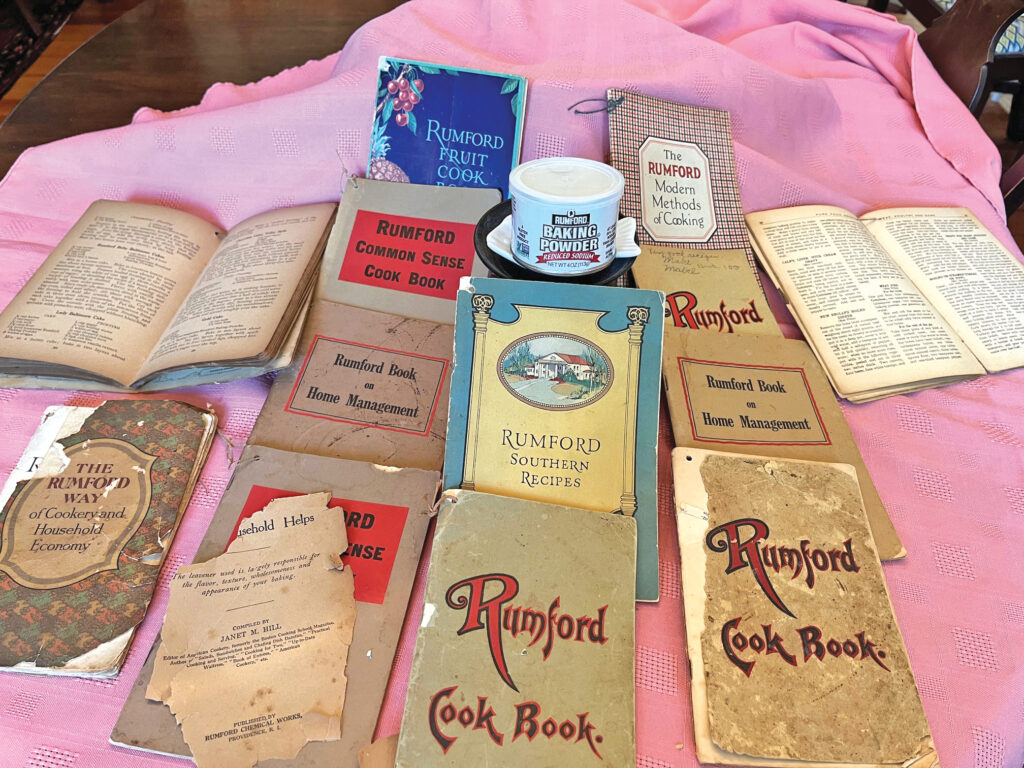In the 1840s an English chemist is given credit for creating the first baking powder, to help his wife who was allergic to yeast. The business did not do well. Eben Norton Horsford, a chemist and professor at Harvard, revolutionized the baking world with the creation of double-acting baking powder. Horsford’s new formula combined an acid (monocalcium phosphate) with baking soda and a drying ingredient (cornstarch) in a single powder. He eliminated cream of tartar, a byproduct of winemaking, which was expensive and not always readily available. His baking powder released carbon dioxide, both when mixed with liquid and when heated in the oven, giving a more consistent rise. He patented his baking powder in 1856. In 1858 Horsford and George Wilson established Rumford Chemical Works in East Providence, Rhode Island, initially retailing under his name but later changing to Rumford named after his professor of chemistry at Harvard. So successful was Rumford Chemical Works that in 1894 the su...
To view the rest of this article, you must log in. If you do not have an account with us, please subscribe here.


